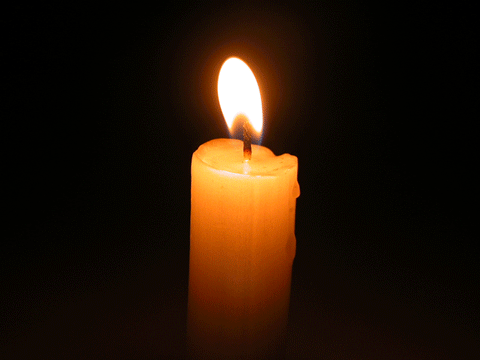Jesus is waiting -
He waits for you with love -
you are never alone
Only in God.com
Catholic Truth Online

Jesus Christ
The Light of our World
always burning for you and me
The Anointing of the Sick
This sacrament unites a sick person’s suffering with those of Jesus and brings healing and forgiveness of sins. A person is anointed with the oil of the sick and receives the laying on of hands from a priest. This sacrament is also referred to as “Last Rites” or “Extreme Unction.” Through the Anointing of the Sick, the person gains the strength to fight the temptation of sin and receives strength for the journey into the next life. The sacrament is administered to those who are in danger of death, those who are seriously ill, and those about to undergo surgery.
The Anointing of the Sick - Catholic Catechism
The Anointing of the Sick is the sacrament that helps unite those who are suffering with Jesus’ saving and healing power. Through this sacrament people receive forgiveness for their sins and comfort in their suffering. They are restored in spirit and sometimes they even experience a return to full physical health. God wants us to give comfort to those who are suffering and wants us to work to relieve suffering where we can.
In the Sacrament of the Anointing of the Sick, the priest anoints those who are seriously ill, injured, or aged with the oil of the sick. In addition to the anointing, the person sometimes receives the Eucharist. When the person is dying, Holy Communion is called “viaticum.” For a person who is dying, the sacrament helps to prepare them for their journey into eternal life.
The Anointing of the Sick sometimes occurs in a church and is given to people who are sick or aged in the community. It often takes place in homes, nursing homes, and hospitals. For example, a person who is going to have surgery may be anointed. This sacrament may be received more than once, such as when a person who is sick has a condition that worsens.
The Sacrament of the Anointing of the Sick produces the following effects:
It confers the grace of the Holy Spirit and unites the person with the Passion of Christ.
The sacrament strengthens the sick person spiritually.
It forgives all sins of the person.
The Anointing prepares the person for the final journey to eternal life.
The sacrament can provide restoration of health, if it is good for the salvation of the person’s soul.
The Sacrament of the Anointing of the Sick has its roots in Scriptures from the Epistle of Saint James. The same following verses are said during the sacrament:
“Is any among you sick? Let him call for the elders of the church, and let them pray over him, anointing him with oil in the name of the Lord; and the prayer of faith will save the sick man, and the Lord will raise him up; and if he has committed sins, he will be forgiven.” (James 5:14-15)
In the Rite of the Anointing of the Sick, the priest anoints the sick person on the forehead, saying, “Through this holy anointing may the Lord in his love and mercy help you with the grace of the Holy Spirit. Amen.” He also anoints the sick person on the palm of each hand, saying, “May the Lord who frees you from sin save you and raise you up. Amen.” The “raising” refers to spiritual healing, as well as to any physical healing that may take place.